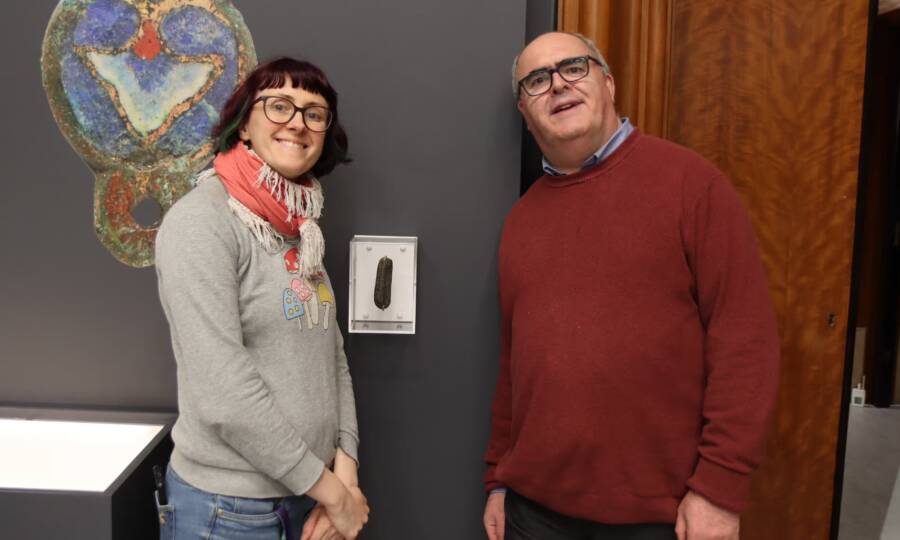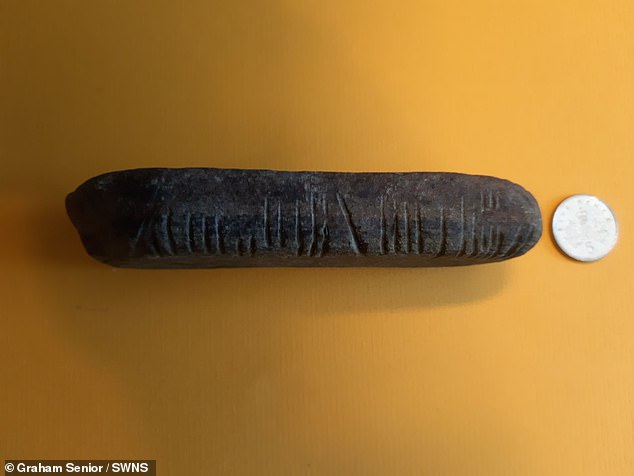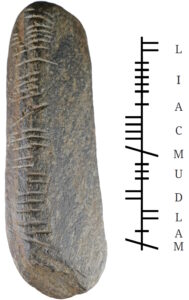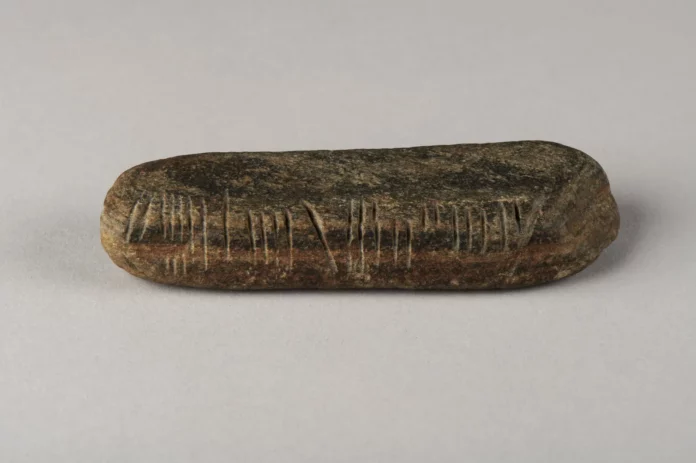A recent and unexpected discovery in a Coventry garden has shed light on ancient Irish history. A geography teacher, Graham Senior, stumbled upon a stone inscribed with the ancient Ogham script, dating back over 1,600 years. This rare find has sparked intrigue and curiosity among archaeologists and historians alike.
The Discovery

While tending to his garden in Coventry, England, geography teacher Graham Senior came across an unusual stone. Noticing strange markings on its surface, Senior’s curiosity led him to photograph the stone and consult with a local archaeologist. To his amazement, the stone was identified as being inscribed with Ogham, an early medieval alphabet used primarily for writing in the Irish language.
Senior described the moment he found the stone: “I was just clearing a flowerbed of weeds and stones when I saw this thing and thought, that’s not natural, that’s not the scratchings of an animal. It can’t have been more than four or five inches below the surface.”
The Ogham-Inscribed Stone

The rectangular sandstone rock measures just over four inches long and weighs approximately five ounces, with inscriptions on three of its four sides. Initially, the markings appeared to be random scratches, but they were soon identified as Ogham letters. Ogham, used from the fourth to the ninth centuries, is the first written form of the Irish language. Typically found on stones across Ireland, Wales, and western England, about 400 examples of Archaic Irish Ogham rocks have been discovered to date.
Ali Wells, a curator at the Herbert Art Gallery and Museum, expressed her excitement: “It really is quite incredible. The language originates from Ireland. So, to have found it within Coventry has been an exciting mystery. Coventry has been dug up over the years, especially the city center, so there’s not that many new finds.”
The Mysterious Inscription

The stone’s inscription, deciphered as “Maldumcail/S/ Lass,” has left researchers pondering its meaning. One theory suggests that “MAel Dumcail” could be a name, but the significance of “S” and “Lass” remains unclear. The purpose of the stone and how it ended up in Coventry are still subjects of speculation. Teresa Gilmore, Senior Finds Liaison Officer for the Birmingham Museums Trust, remarked, “These finds do not turn up in the midlands. The bulk of Ogham inscriptions are found over in Ireland.”
Graham Senior offered a possible explanation: “We’re not far from the River Sowe. My thinking is that it must have been a major transport route.”
Conclusion
The discovery of the Ogham stone in Graham Senior’s garden offers a fascinating glimpse into the pre-Latin era of the Irish language. While many questions remain unanswered, this find underscores the rich and complex history of written language and cultural exchange. The stone’s presence in Coventry, far from its typical origins, adds an exciting chapter to the story of ancient inscriptions and their travels through time and space.
